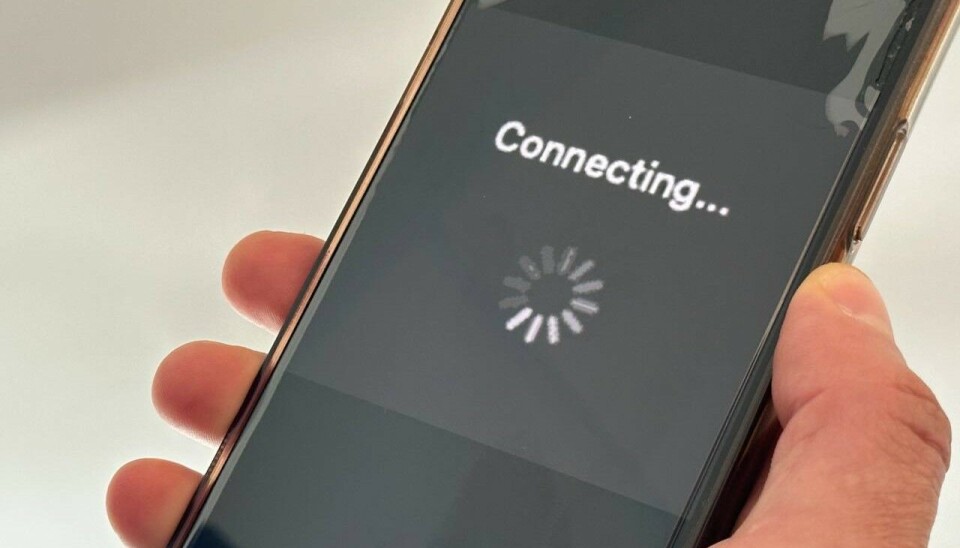
Northern Russia troubled by mobil internet shutdowns
Officials pretend that everything is under control, but it is not. People are losing the ability to earn money, buy goods and services, and even receive medical care. A new reality for northerners: the threat of drones, cancelled flights at airports, and the collapse of the digital environment - probably the only tangible achievement of the Putin era.
“We have noticed that many of you have started going out less often. But we have great news to lift your spirits! We invite you to our café! We not only have delicious food but also free Wi-Fi! Enjoy aromatic dishes while staying connected to the world!”
This advertisement was placed in mid-August by one of the establishments in Syktyvkar, the capital of the Komi Republic. As they say, a crisis is a time of opportunity when you need to use any advantages. And in Russia in 2025, having a router is already a serious competitive advantage.
Mobile internet outages began in Komi in the summer, but the peak of shutdowns occurred in mid-August when, for the first time since the start of the full-scale war, a Ukrainian drone reached the region.
There are similar stories in neighbouring regions: mobile internet disappeared in Karelia, Murmansk, and Arkhangelsk regions.
In Ukhta, for example, at the time of writing this text, there has been no mobile internet for 11 days. With an unflinching hand, officials are sending the subordinate population, if not to the Stone Age, then somewhere towards the 1990s.
Here is a story shared on her personal page by Natalia Koneva from Yemetsk in the Arkhangelsk region:
“We went to the shops. You can't pay with a card without the internet. Neither bonuses nor pensions work. Local entrepreneurs sold products, but for cash. Not everyone had it, as you understand. There is a Sberbank branch here. Everything worked there. The ATM dispensed cash for a while, as long as there was money...
It was possible to withdraw money from another bank's ATM, but with a commission. There was no internet for almost three days! My husband bought some products in a local shop on credit. This is only possible in a village and under the seller's responsibility. The record was several pages long!
When the internet was restored, we went to “Magnit”. The shelves were surprising… Canned goods, cheap cereals by the packet on the remnants... Does it remind you of anything?! Yes, there are dairy products, sausages, cheese, and much more. But what is needed every day was taken,” Koneva wrote from the village of Yemetsk.
“Without GSM, you can't find anything”
Natalia Koneva, one might say, got off lightly. For some, having mobile internet is literally a matter of health.
“In our village, there is no cable [internet]; yes, probably not only with us. In my family, there is a child with a rare disease, and every month I send tests, and [we] consult with doctors. But this is all in St. Petersburg, and for this, you need the internet,” writes Anna Surzhan from the Karelian village of Ladva.
My child is six years old, and he has a speech disability. He needs educational cartoons, he needs to study. The specialist doctors are in Murmansk, and we keep in touch with them through messengers. I need to take my child to an appointment, but there's no communication with the doctors!”
- says Natalia from the city of Apatity.
The shutdowns have struck society hard, which in recent years has come to enjoy high digitalisation. “I feel like dying” - this is how one resident of Syktyvkar responded to a question about how she is living without mobile internet. Payment terminals in buses and shops are not working; taxi drivers cannot accept orders, and if they can, they don't know where to go (navigation via smartphone with internet); banking and government service apps are not working; and so on.
“Kind people! Please share taxi phone numbers, I urgently need to get to the airport,” - writes a resident of Murmansk in the comments to one of the posts on Telegram.
“I'm a courier, and I'm 20 minutes late because without GSM you can't find anything,” - writes another user.
“The cash register didn't work, I had to look for cash to pay for the repair of brake discs and pads,” - says another.
“Due to the disconnection of mobile internet in Syktyvkar, we are forced to suspend the operation of our 'smart' refrigerators, as the terminals do not accept payments,” informs the vending company to its clients.
The former business ombudsman of the Murmansk region, Maxim Belov, called the disconnections a blow to business. The ex-official explained that many products today are certified through specialised information systems, and without the internet, they cannot be sold, even for cash.

Local officials give residents recommendations on how to act during shutdowns. For example, if possible, use cable internet and regular mobile communication. But these recommendations do not work, and here is why;
Firstly, even official statistics show that people have started connecting to mobile internet more often than stationary: that is, some simply do not have cable internet.
Secondly, in a huge number of settlements, there is no stationary internet at all, and against this background, the advice of officials looks simply mocking.
Thirdly, where would fixed internet come from on the street, in the city centre? Yet that's exactly where it's needed by numerous taxi drivers and delivery workers.
And finally: along with mobile internet, mobile communication often also failed.
Ukhta city, no messages or calls, and if there are calls, they stutter terribly”
Syktyvkar, three days without mobile internet, plus neither can anyone reach me, nor can I reach anyone in most cases”
No internet, you can only get through on the fifth try. And in the city, the connection appears rarely anywhere”
When will the connection appear? Never mind the lack of internet, it's impossible to call”
- such comments from residents of the northern regions flood social media.
And the authorities are hiding it
It is believed that Ukrainian drones use mobile internet for targeting, and shutdowns are a means of protection. However, cutting off people's communication is also associated with other reasons. For example, in the Arkhangelsk region at the end of July, people were left without internet for a reason no less frightening than a drone loaded with explosives: Vladimir Putin visited the region.
But most disconnections occur without any visible reason. On August 20, mobile internet disappeared again in Komi. No drones or any other danger were reported on that day. As explained by the regional Ministry of Digital Development, the disconnection is a “planned preventive measure aimed at protecting infrastructure and ensuring the stability of important facilities.” The word “planned” later disappeared from the press release, but users noticed it and reacted accordingly.
“If this is a planned measure, why wasn't there a warning in advance?” - asked Diana Oparina from Syktyvkar.
“And if this is a planned measure, can we see the plan?” - quips her fellow resident Andrey Mironov.
“Voice calls and SMS don't work either!” - writes user Anastasia Glukhova, responding to officials' advice to use “traditional” means of communication.
“It's really strange: what's the point of cutting off the internet if drones fly by GPS coordinates?” - ponders Evgeny Miroshnikov from Usinsk.
Good question, Evgeny.
Some reproduce an old meme about the uselessness of the internet: supposedly, in the absence of digital communication, interpersonal connections strengthen, and there is more time for walks in the fresh air. These comments are characteristically written on the internet. Others, on the contrary, point out that they are witnessing a regression to the past, which will lead to nothing good.
“The whole world is developing, and we will soon slide back to landline phones, then we'll have to run to the telegraph station to make calls, and then write letters... People are rightly outraged, why should everyone abandon modern technologies because of a bunch of ghouls?” - asks Semyon Azov from Vorkuta.
Good question, Semyon.
Priority - war
“For residents of small villages and hamlets, the advent of the internet and mobile communication means new opportunities for work, study, and staying in touch with loved ones. It provides access to government services, telemedicine, and distance education. We are erasing the boundaries between the city and the countryside…”
Such optimistic forecasts were recently given by the acting governor of Komi, Rostislav Goldstein. The press release from which the quote is taken is dedicated to the installation of mobile communication towers in 12 settlements in Komi with populations ranging from 100 to 500 residents. The unpleasant fact that previously there was no communication in these settlements at all is left out - but now it will appear, won't it? Moreover, the towers are being installed as part of the national project “Data Economy and Digital Transformation of the State,” initiated by Vladimir Putin - this fact is particularly emphasised in officials' reports.
However...
The governor of the Murmansk region, Andrey Chibis, has already acknowledged that the situation will only worsen. “In some areas, there will be no mobile internet in the near future,” he stated at a meeting in the second half of August. Both the economy and “digital transformation,” whatever that means, are losing to the main goal of the Russian state - war.
Shutdowns, flight cancellations, drones flying overhead, and air raid sirens are a direct consequence of Putin's war in Ukraine and Putin's repressions. This is the reality that has reached even the most remote areas today. Notably, the residents of Komi voted for connectivity to come to their villages; however, this is not the kind of vote that could fix anything.
This is a translated article, originally published in the Russian edition of the Barents Observer.























